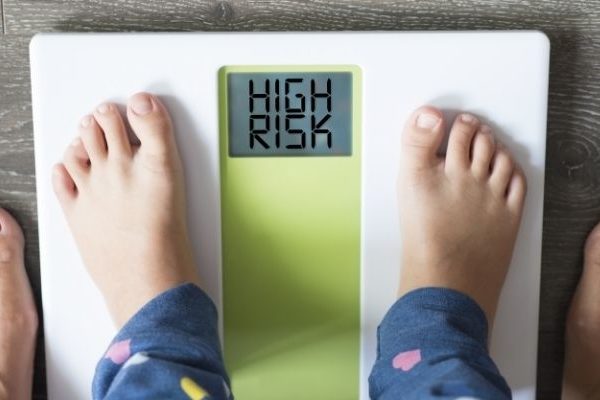
In the U.S. between 2002 and 2015, there was a 4.8% increase per year of type 2 diabetes for youths under 20 years of age. Sadly, these rates are only going to be increasing if we as parents and as a society don’t make an effort to reverse the obesity epidemic.
How does being an overweight/obese child have an effect on the remainder of their lives?
There is an increased risk for:
- Cardiovascular disease
- Type 2 diabetes
- Breathing problems
- Joint problems
- Fatty liver disease
- Gastroesophageal reflux disease
- Social/psychological problems
The matter of the truth is that obese children are more likely to become obese adults. Adult obesity increases the risk for heart disease, type 2 diabetes and some cancers (i.e. colon, liver).
How can we encourage healthy lifestyles at a young age? What, as parents, can we do?
As a family:
- Drink water instead of sugary beverages
- Drink water before eating to help with portion control (early satiety)
- Reduce consumption of saturated fats, salt and added sugars
- Eat 3-5 servings of fruits and vegetables a day
- Increase consumption of whole grain foods
- Participate in at least 60 minutes/day of aerobic exercise
- Eat together at the kitchen table, not in front of the TV
From a telehealth perspective, how are we able to provide care?
There are only certain diagnoses that need to be visited for in-person care, and obesity is not one of them. For pediatric GI referrals related to obesity, there is usually a concern by primary care physicians about elevated liver enzymes and fatty liver on an abdominal ultrasound. Often, these patients have seen their PCP at annual visits, and growth charts show BMI above 85 percentile (overweight) or 95 percentile (obese). They may have symptoms, a physical exam or lab findings concerning for metabolic syndrome, which may include high blood sugar, high blood pressure, excess body fat around the waist, and abnormal cholesterol levels.
Metabolic syndrome increases a person’s risk for stroke and heart attack. If no lab work has been done for an obesity evaluation, labs should be ordered to check liver enzymes, lipid panel, diabetes, and thyroid disease. These can be ordered easily through MyCatholicDoctor to have completed at the lab nearest you. Blood pressure measurements should also be tracked. Additionally, counseling regarding making healthy lifestyle changes can be done by telemedicine quite effectively. Many children do not have a good idea what is considered brisk walking as a simple way to incorporate routine aerobic exercise into their schedule. Many families do not have adequate knowledge about the harmful effects of excessive sugary beverages and what are appropriate portion sizes for their child at different ages. A nice resource for healthy nutrition that I always recommend is www.myplate.gov. There are many colorful charts that families can look over to figure out how to create a more balanced meal for their children.
From a Catholic perspective, why is it important we combine faith into our treatment plans?
Gluttony and Sloth are two of the 7 deadly sins that we are constantly battling.
Gluttony is defined as the overconsumption of usually of food or drink. “The virtue of temperance disposes us to avoid every kind of excess: the abuse of food, alcohol, tobacco, or medicine” (No. 2290).
Sloth is defined as physical laziness, with also the disinterest in spiritual matters or neglecting spiritual growth. “Acedia or spiritual sloth goes so far as to refuse the joy that comes from God and to be repelled by divine Goodness” (No. 2094).
When trying to set and achieve goals towards a healthier lifestyle, all of us face challenges that we cannot overcome without God’s intervention. Developing a strong spiritual life reminds us to surrender our challenges to God so that He can help us overcome our addictions to food and our lack of motivation to improve our well-being both physically and spiritually.
To hear more on Childhood Obesity, listen to my interview with Dr. Thomas McGovern on EWTN’s Doctor, Doctor Podcast.
Our team of Pediatricians are happy to see your child and can consult with Dr. Nguyen if she is not licensed in the state where you are located.
Author: Dr. Katrina Nguyen, Pediatric Gastroenterologist with MyCatholicDoctor
Editor: Samantha Wright, Marketing Director with MyCatholicDoctor
Leave a reply
